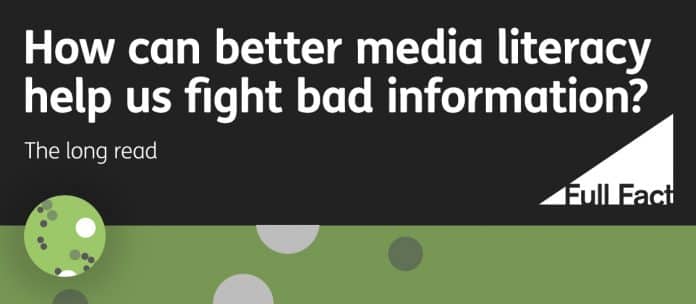As citizens, we’re all responsible for the quality of public debate. Fact checkers’ efforts can go much further if they work alongside a critical and vigilant public. Everyone can stand up for good information.
Luckily, the evidence shows that we can learn how to better understand and assess the quality of the news we read.
Whether in the classroom or online, education can be effective across many different countries and age groups – even if we have a long way to go until an agreed practice becomes enshrined worldwide.
Media literacy around the world
Media literacy isn’t a new concept. For decades, there has been a global search to find the best ways to help improve citizens’ ability to access, evaluate and use information correctly.
There’s global consensus on the importance of media literacy, but a wide variety of policy frameworks, and even more diversity in practice.
In some places, like the UK and some Latin American countries, media literacy is enshrined in legislation and embedded in national curricula. In Africa it is driven more organically by coalitions of academics and media professionals.
No blueprint works for all
It’s hard to generalise about a single most effective way to improve media literacy across the world, given differences in the populations, issues, styles of intervention and methods of evaluation.
That said, the evidence makes one thing clear: we can all learn to be more information savvy.
Classroom training and games
We found that media and information literacy initiatives increased participants’ knowledge, criticism, and awareness of the influence of the media.
There’s growing evidence on what can make a difference across a range of different ages:
- A newsroom simulation conducted with 500 British schools found that asking students to put themselves in the positions of editors, who have to select which information is trustworthy enough to publish, significantly increased their awareness of fact checking, and their abilities to assess the quality of news.
- Adults can be educated too. An online browser game which set out to raise awareness of deception tactics by asking players to take on the role of a fake news reporter, found a significant increase in players’ abilities to distinguish between reliable and unreliable information.
More work is needed
We need to do more to improve experiments like these, and assess their impact in the long term.
It’s not something we can do alone — we also think fact checkers should be working alongside educators, civil society organisations and the public sector to help create a culture of accuracy among citizens across the world.
You can start now, by reading the briefing and thinking about how you evaluate the media you use.
Read the report here:
Media and information literacy







